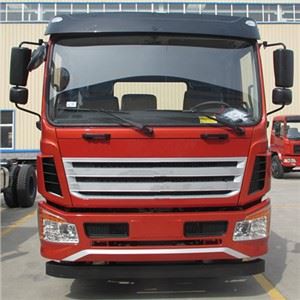Sewage Trucks: Essential Vehicles for Maintaining Sanitation

Sewage trucks play a crucial role in waste management, sanitation, and environmental preservation. These specialized vehicles are equipped to handle the efficient collection and transport of sewage, wastewater, and other liquid waste. Understanding their operation, types, applications, and maintenance can provide valuable insights for businesses and communities alike.
What is a Sewage Truck?
A sewage truck, also known as a vacuum truck, is a vehicle designed for the collection and transportation of sewage and other liquid waste materials. It utilizes a vacuum system to suck up waste from designated areas and holds it in a tank for transport to treatment facilities.
How Do Sewage Trucks Work?
The technology behind sewage trucks involves a vacuum pump and a storage tank. Here’s how it works:
- Vacuum System: The pump creates negative pressure that allows waste to be sucked into the tank.
- Storage Tank: The collected waste is held in a sealed tank to prevent leaks or spills during transport.
- Discharge Mechanism: Once the truck reaches a treatment facility, the waste is discharged from the tank using gravity or pressurized systems.
Types of Sewage Trucks
Sewage trucks come in various types tailored for specific tasks. Here are the most common types:
1. Vacuum Trucks
These trucks are primarily used for liquid waste, including sewage and industrial liquids. They are equipped with powerful vacuum pumps to handle a variety of waste types.
2. Combo Trucks
Combo trucks combine the functions of vacuuming and jetting. They are equipped with high-pressure water jets to clear blockages in sewer lines while also having the capability to vacuum up debris.
3. Septic Tank Trucks

These trucks are specifically designed for servicing septic tanks. They often have large tanks to accommodate the significant volume of waste removed from residential and commercial septic systems.
4. Grease Trap Trucks
Grease trap trucks are specialized for cleaning grease traps at restaurants and kitchens. They remove accumulated grease and food particles to maintain proper functioning of waste systems.
Applications of Sewage Trucks
Sewage trucks are indispensable in various sectors. Their applications include:
Municipal Waste Management
Local governments utilize sewage trucks to manage waste collection from residential and commercial properties, ensuring proper sanitation and hygiene.
Industrial Waste Management
Industries generate liquid waste that requires specialized dumping systems. Sewage trucks transport these materials to treatment facilities for appropriate disposal.
Construction Sites
Construction sites generate significant amounts of liquid waste, making sewage trucks essential for maintaining cleanliness and adhering to health regulations.
Septic System Maintenance
Regular maintenance of septic systems is crucial to prevent overflows and malfunctions. Sewage trucks provide the necessary service to pump out and maintain these systems.
Benefits of Using Sewage Trucks
Integrating sewage trucks into waste management practices offers several benefits:
| Benefit | Description |
|---|---|
| Sanitation | Removal of waste directly contributes to improved health and hygiene standards. |
| Environmental Protection | Proper waste management helps prevent environmental contamination. |
| Efficiency | Vacuum technology ensures rapid and effective waste collection. |
| Cost-Effectiveness | Regular maintenance of waste systems reduces the risk of costly emergencies. |
Choosing the Right Sewage Truck
Selecting the appropriate sewage truck depends on various factors. Here are some vital tips:
1. Understand Your Needs
Evaluate the type and volume of waste you will be dealing with. Choose a truck that matches those specifications.
2. Consider Tank Size
The size of the storage tank is crucial. A larger tank means fewer trips to the disposal site, which can save time and costs.
3. Evaluate Attachments and Accessories
Ensure the truck has the necessary attachments, such as hoses, pumps, and vacuums, that suit your specific requirements.
Maintenance of Sewage Trucks
Proper maintenance practices are essential for the longevity and efficiency of sewage trucks. Key maintenance tasks include:
1. Regular Inspections
Frequent inspections of the vacuum pump, hoses, and tanks help identify issues before they escalate.
2. Cleaning Procedures
After each job, ensure the tank and hoses are thoroughly cleaned to prevent any buildup that could lead to blockages or odors.
3. Lubrication of Moving Parts
Regularly lubricate mechanical parts to ensure smooth operation and prevent wear and tear.
4. Compliance Checks
Stay updated with local regulations regarding waste disposal, and ensure all necessary compliance checks are performed.
Cost Factors Associated with Sewage Trucks
The cost of sewage trucks varies based on several factors. Here’s what influences the pricing:
1. Truck Type
Different types of sewage trucks have varying price points due to their capabilities and specifications.
2. New vs. Used
The decision to purchase a new or used truck significantly affects the cost. New trucks come equipped with the latest technology but at a higher price, while used trucks can be more budget-friendly.

3. Maintenance Costs
Consider ongoing costs associated with maintenance and repairs, which will affect the long-term affordability of owning a sewage truck.
4. Brand Reputation
Reputable brands might offer higher upfront costs, but they tend to provide better reliability and resale value.
Common Myths About Sewage Trucks
Many misconceptions surround sewage trucks. Let’s debunk some of them:
1. Sewage Trucks Only Handle Human Waste
While a primary application is collecting sewage, sewage trucks can handle diverse types of liquid waste from various industries.
2. Sewage Trucks Are Always Smelly
Modern sewage trucks are designed to minimize odors, equipped with sealed tanks and advanced cleaning systems.
3. You Only Need a Sewage Truck if You Have a Septic System
Even urban areas with sewer systems require sewage trucks, especially for routine maintenance and emergency situations.
FAQ About Sewage Trucks

1. How often should sewage trucks service septic systems?
Typically, septic systems should be serviced every 3 to 5 years, depending on usage and local regulations.
2. What is the capacity of a standard sewage truck?
Most standard sewage trucks have capacities between 1,000 to 3,000 gallons, but larger models can hold more.
3. How much does a sewage truck cost?
New sewage trucks can range from $100,000 to $300,000. Used trucks can be significantly less but vary based on age and condition.
4. What safety measures are in place for sewage truck operators?
Operators should wear protective gear, including gloves and masks, and follow safety protocols to manage spills or leaks.
5. Can sewage trucks handle industrial waste?
Yes, many sewage trucks are equipped to handle a variety of industrial waste, including hazardous materials, depending on the truck’s specifications.
6. Are sewage trucks environmentally friendly?
When operated and maintained properly, sewage trucks can be environmentally friendly by ensuring waste is disposed of safely and responsibly.
